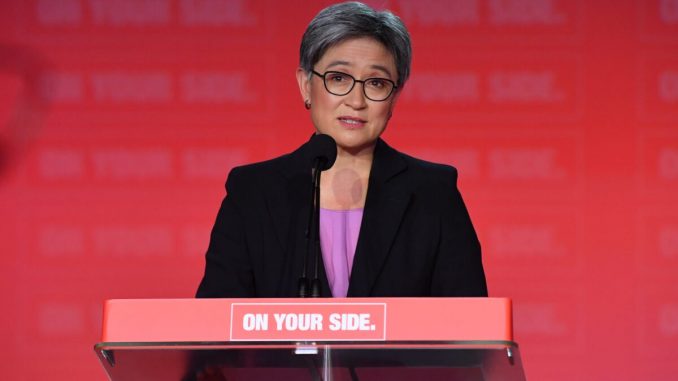
Australia’s Shadow Foreign Minister Penny Wong has accused the Morrison government of “encouraging anxiety” around possible conflict with China and “pandering to the far-right” interests of the Liberal government.
Wong was speaking at a book launch for journalist Peter Hartcher’s “Red Zone: China’s Challenge,” where she spoke extensively of the threat posed by the Chinese Communist Party (CCP), noting that the Chinese regime was focused on “survival.”
“Drawing some lessons from the collapse of the Soviet Union, the Communist Party of China under Xi Jinping has explicitly warned about the threats posed by liberal, democratic values to China’s stability—and by extension, the Party’s survival,” Wong told attendees.
“So not only will it seek to assert the superiority of its system of government, casting its rise and the CPC’s successes against claims of Western inferiority and failure, it will go to great lengths to remove what it perceives to be threats,” she added.
The South Australian senator said this was demonstrated in Beijing’s crackdown on Hong Kong, Tibet, Xinjiang and its efforts to change the global human rights order from within the United Nations.
“The militarisation of disputed features of the South China Sea, flouting international law, and the ‘cabbage leaf’ and ‘swarming’ actions there that sought to intimidate Indonesia, the Philippines and Vietnam—all part of Beijing’s grey zone tactics,” she added.
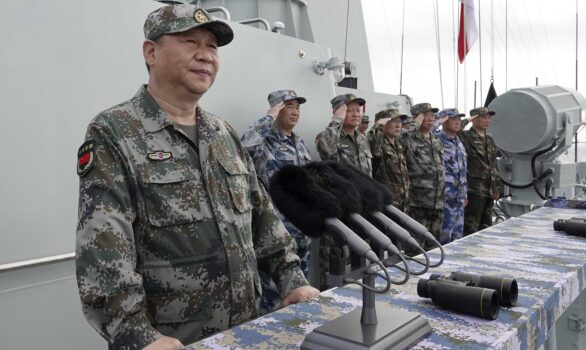
Wong also emphasised the Australian Labor Party’s (ALP) engagement with the region.
“Asia has never been a monolith; it has never been static; it isn’t now. Asia is in Labor’s DNA—in my case, literally,” she said.
“It includes Southeast Asia, which (former Prime Minister) Keating and (former Foreign Minister) Evans put at the centre of Australian foreign policy. It includes India, which (former Prime Minister) Gillard elevated as a strategic and economic priority,” she added.
“The Liberals have always been awkward in Asia. They rarely get the balance right; naïve one day, belligerent the next.”
Wong said the U.S. Biden-Harris Administration was sticking to a policy of “strategic ambiguity” to maintain the status quo around the Taiwan Strait.
“On what basis, therefore, is the Australian government sprinting ahead of that longstanding U.S. position?” she said.
The shadow foreign affairs minister was referring to comments by recently appointed Defence Minister Peter Dutton, who said the conflict over Taiwan could not “be discounted.”
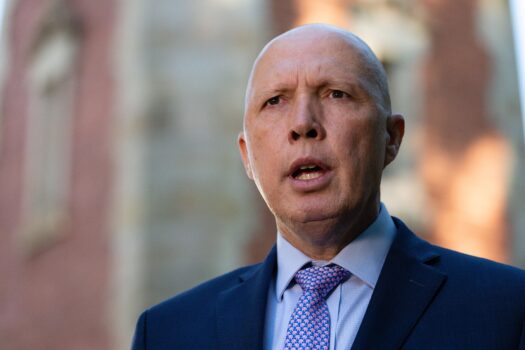
Days later, Home Affairs Secretary Mike Pezzullo issued a stern warning for Australia to be strong and prepared while warning that the “drums of war” were beating in the region.
Wong claimed recent discussion around China was “frenzied, afraid, and lacking context.”
“This has been made so much worse—by a prime minister who is only interested in any issue to the extent it offers him the political value,” she said.
“My concern is that not only does he not fully comprehend Australia’s interests in relation to China, he doesn’t even seek to. As with everything else he does, he only seeks to understand his political opportunity.”
The shadow foreign minister claimed that the government was focused on “pandering to the far-right” or seeking a “partisan advantage” over the ALP.
She also took aim at Prime Minister Scott Morrison’s initial decision to recognise West Jerusalem as Israel’s capital in 2018, following in the wake of U.S. President Donald Trump decision to do so.
“He went all in on President Trump, even attending a campaign rally, breaking long-standing foreign policy conventions by refusing to meet with senior Democrats, pandering with his ‘negative globalism’ attacks on multilateral institutions that are central to Australia’s interests, and refusing to call out the U.S. Capitol insurrection when other world leaders did,” she said.
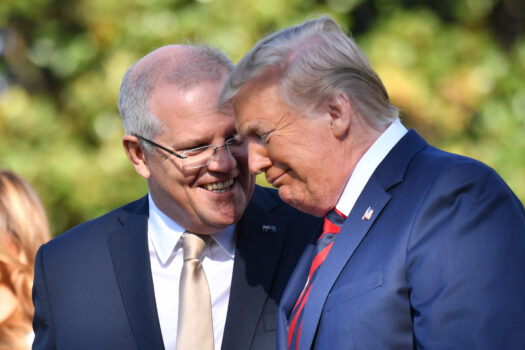
Wong’s speech has been described as two speeches “wrapped into one.”
“The first was a refreshing and thoughtful articulation of the strong bipartisan foundations for Australia’s China policy,” according to Defence Director Michael Shoebridge of the Australian Strategic Policy Institute.
“She also recognised, unlike numerous nostalgic former political figures and senior officials, that the China policy they implemented just can’t work for the China the world is dealing with now that Xi is its leader.”
“Unfortunately, the second speech wrapped around this one treated the domestic debate on China as part of the ALP’s domestic political strategy by attacking the government for apparently doing this same thing,” he told The Epoch Times.
“That can only advantage Beijing and its propaganda machine and pro-Beijing advocates here and elsewhere.”
Shoebridge’s comments were echoed by Joseph Siracusa, adjunct professor of the history of international diplomacy at Curtin University.
“Wong’s speech strikes me as very long on narrative and short on analysis—that is, she seems more interested in delivering a political counterpunch to the Morrison government’s public pronouncements than actually explaining the enduring issues in Sino-American relations,” he told The Epoch Times.
“Harking back to (former Prime Ministers) Whitlam, Hawke, Keating, and Rudd doesn’t cut it. It would have made more sense to talk about the Shanghai Communique of 1972 and its current applicability,” he added.
The Shanghai Communique was the beginning of normalised relations between Communist China and the West. The political status of Taiwan was deliberately left ambiguous so it would not impede the progress of the agreement.
The Morrison government last year published its 2020 Strategic Update, which saw the government commit $270 billion to the Australian Defence Force over the next ten years.
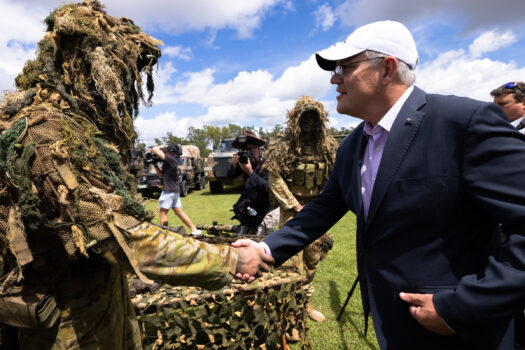
Prime Minister Morrison said the Update established a baseline federal budget spend on defence of 2 percent going forward.
It was established in response to a world “that is poorer, that is more dangerous, and that is more disorderly.”
“We have not seen the conflation of global, economic, and strategic uncertainty now being experienced here in Australia, in our region, since the existential threat we faced when the global and regional order collapsed in the 1930s and 1940s,” the prime minister said.



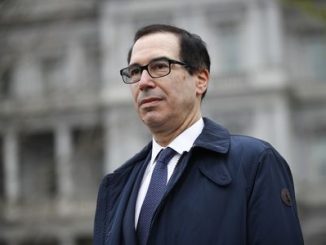
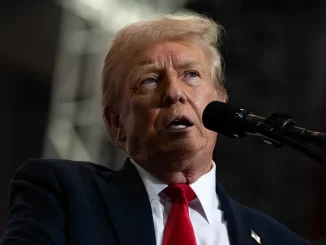
Be the first to comment